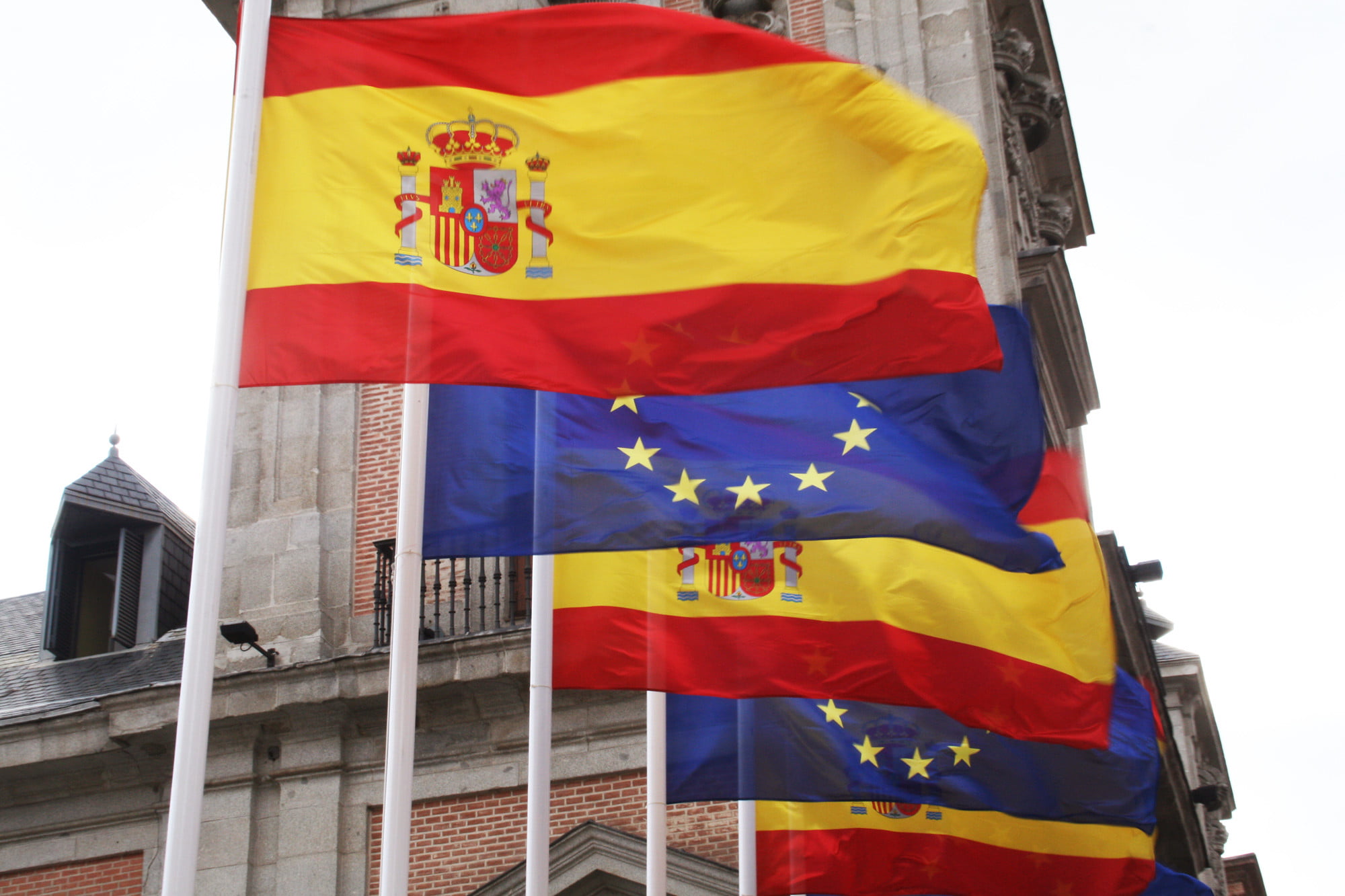Barcelona Declaration sets new ambition for sustainable transport in the EU
During an informal meeting of the EU Transport Ministers headed by the Spanish Presidency of the Council, a range of ambitious goals were set for Europe's future mobility. From EU-wide interconnectivity to decarbonisation, gender inclusivity, and support for transport jobs, the Barcelona Declaration demands action from all sides.
Last week, Spain's Minister for Transport, Mobility and the Urban Agenda, Raquel Sánchez, chaired a meeting of the EU Transport Ministers in Barcelona under the auspices of the Spanish Presidency of the Council of the EU. At the meeting, transport leaders from across Europe acknowledged the important work that cities and regions are doing to make mobility smarter and more sustainable in the EU while also recognising the need for stronger ambition in several areas. The Barcelona Declaration calls upon public and private actors at all levels to make key changes in the area of mobility, necessary for the EU to advance the European Green Deal and the Sustainable and Smart Mobility Strategy.
Mobility: A key ingredient in Europe's sustainable future
Few other sectors are as essential as transport for the functioning of Europe's internal market, and, by connection, for the economic well-being and quality of life of European citizens. Moreover, because the transport sector still contributes significantly to environmental pollution in the EU, a transition toward smarter and greener transport is urgently needed for Europe to achieve its climate action goals and provide a healthier living environment for all citizens.
Accordingly, when the European Commission (EC) adopted the European Green Deal in December 2019, it acknowledged the need to provide transport users with more affordable, accessible, healthy, and environmentally sustainable alternatives to the modes of transport currently available.
Moreover, in its 2020 Sustainable and Smart Mobility Strategy (SSMS), the EC stressed the importance of enhancing connectivity between urban and rural regions and making transport more inclusive for persons with disabilities and persons with reduced mobility. One year later, in its 2021 Long-Term Vision for Europe’s Rural Areas, it called for "connected, resilient and prosperous rural areas by 2040." The EC's 2021 announcement came as a timely reminder to Member States and regions that efforts to achieve greater transport connectivity are investments in social equity across Europe.
In line with the EC's ambitions, POLIS actively promotes equitable and sustainable mobility through its Working Groups on Regions and Small and Medium-Sized Cities (SMCs). Chaired by Baden-Württemberg, the Regions Working Group addresses topics such as regional land use planning (e.g. "the 15-minute region") and improved regional governance of traffic infrastructures. In turn, the Small and Medium-Sized Cities Platform investigates the potential for smart data management and digitised mobility in SMCs, proposes strategies for closer cooperation between Europe's SMCs and regions, and analyses the potential for reductions in car usage from a health perspective -- to name just a few of its ongoing efforts.
Upping the ante
Welcoming the EC's efforts and sharing POLIS' vision of an even greener, more prosperous, and more equitable future for Europe's regions and cities, the EU Transport Ministers outlined a series of next steps for the transport sector in last week's Barcelona Declaration.
In a press release, the Spanish Presidency defined the purpose of the Declaration:
"...with this Barcelona Declaration, we, the EU Transport Ministers, acknowledge the crucial role that mobility plays in advancing social and territorial cohesion, while also mitigating inequalities."
The Declaration addresses several decision-makers and stakeholders as agents of change, including local and national authorities, transport companies, and the EC itself. Below, the demands directed to each of these entities are summarised.
The Declaration calls upon the Commission to:
- focus on sustainability, affordability, and equality as it adopts measures to make Europe's transport more sustainable
- report on the transport challenges faced by urban nodes as well as rural, insular, peripheral, mountainous, and sparsely populated areas
- provide data to evaluate transport inequalities and mitigate transport poverty
- support cross-border public transport services and pilot projects to test innovative mobility concepts in sparsely populated areas
- facilitate the combination of mobility services
- improve the user experience for citizens travelling across Europe
- engage communities in decision-making and implementation processes regarding mobility
The Declaration calls upon local and national authorities to:
- optimise public spending to provide accessible, affordable, safe, and environmentally friendly modes of transport to users
- enhance intergovernmental cooperation and integrate stakeholders when aligning policy and coordinating investments in mobility (including for cross-border projects)
- bring communities into the design and implementation of new transport services to tailor mobility solutions to specific territorial needs
Finally, the Declaration calls upon private sector actors to:
- collaborate with public authorities to develop new mobility solutions adapted to the specific needs of user groups across Europe
- offer more sustainable transport options for their employees, including for daily commuting and work-related travel
Toward a more sustainable future for Europe's mobility
Beyond its requests for local and national authorities, the private sector, and the EC, the Barcelona Declaration encourages several concrete measures to be taken in the coming years, namely:
- the adoption of a revised TEN-T Regulation (currently under negotiation)
- the creation of a Europe-wide transport network facilitating access to the entire European territory
- a range of custom-made mobility solutions that build on community input and make transport affordable and effective for everyday use
- the expansion of smart and decarbonised transport systems across Europe's cities and regions
- measures to make mobility more digitally accessible (e.g. via mobile applications)
- support for data-driven decision-making, resource allocation, and policy monitoring (e.g. real-time data analytics and data sharing)
- the inclusion of active mobility modes (e.g. walking and cycling) as well as shared mobility and public transport in the mobility offer of Europe's regions and cities
- improved safety measures that address road user behaviour and infrastructure investments to protect vulnerable road users (e.g. pedestrians, cyclists, and motorcyclists)
- policies to improve access to mobility for people with disabilities and /or reduced mobility
- the integration of gender and equality perspectives in the development of future mobility plans
- measures to enhance the attractiveness of transport professions
- the use of the Social Climate Fund to support projects aimed at improving rural connectivity
In consideration of its environmental ambition and its attention to social inclusivity, POLIS welcomes the Barcelona Declaration as a step in the right direction for Europe's future mobility.
To learn more, take a look at the press release from the Spanish Presidency of the Council of the EU or read the Barcelona Declaration directly.

